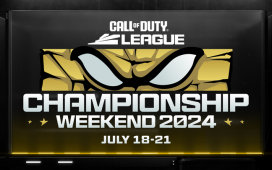Mentioned in this article
At the end of January, one day before his team would be featured in as part of a full-length film premiere, Sébastien “Ceb” Debs quit Dota 2. Or at least, for now; remaining on the roster of his team OG, but with the intention to propel his players from behind the scenes. At his hotel room the morning after, his composure was one of relief, now that his decision was public.
“OG’s taken off competitively, I think we have a lot more goals than we had in the past,” he told The Esports Observer. “We built methods and a system that worked very well for that team, and that we’re convinced is going to work very well for other teams to come. I feel I’d be able to replicate that system because I’ve been part of it.”
OG is a unique entity in esports. A partly player-owned organization, it until recently competed in (and sustained itself) primarily through one game.
Debs was originally the coach of OG, but took to the field right before the team’s historic cinderella run at the 2018 edition of The International (TI); the de facto Dota 2 world championship. After claiming victory and $11.2M USD in prize money, OG would make history one year later with the first-ever back-to-back TI win, netting a further $15.6M in winnings. Esports Earnings puts Deb’s personal prize money won at $5.4M.
Alongside Debs, two other members of OG’s championship roster will not be competing this year. “We would rather have players to have the maturity to put the distance to where they are at competitively than players who are just going to blindly chase something that they’re not in a position to acquire,” said Debs.
Dota 2 sits in a unique quandary in esports. It has no franchise-style leagues or revenue sharing agreements but rewards players and teams primarily in prize money. The reason TI’s money pot is so large is that the game publisher, Valve, releases a special Battle Pass (a digital program and in-game content pack) and puts 25% of all sales to the prize pool.
“There’s this thing with Dota that if you’re not winning TI, you’re kind of a loser. That’s what it feels like,” said Debs. Players qualify for the tournament based on their performance in “Majors” scattered throughout the year. “This built into mindsets and mentalities where people…I don’t want to say they only respect TI wins, but there’s that sense in Dota.
“There are the teams that won TI, and the other teams that are trying to win TI. There’s no middle ground.”














